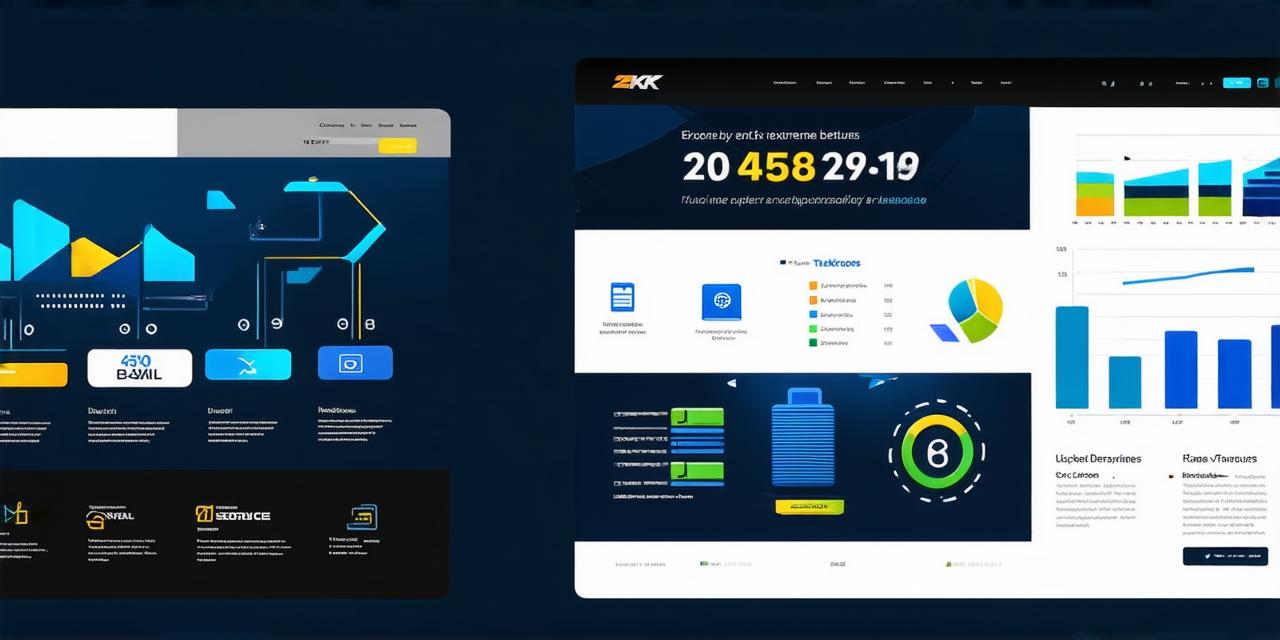Introduction:
Hosting is an essential part of web development. It allows developers to store and deliver their website files to the internet. Choosing the right hosting provider can be overwhelming, especially for beginners. In this article, we’ll explore what makes a good hosting site for developers, taking into account various factors such as performance, uptime, security, customer support, and pricing.
Performance:
A good hosting site should offer high-performing servers that can handle the traffic demands of your website. Server resources such as CPU, RAM, and storage space can impact the speed and stability of your website. Websites hosted on powerful servers tend to load faster and have fewer downtime periods than those hosted on less powerful ones.
Uptime:
Downtime is a major concern for any website owner. A good hosting site should offer uptime guarantees that are typically 99.99%. Downtime can result in lost revenue, especially for e-commerce sites and online businesses. Choosing a reliable hosting provider that prioritizes uptime and has backup and disaster recovery plans in place is crucial to keep your website up and running smoothly.
Security:
Security should be a top priority for any hosting site. Websites are often targeted by hackers, and a data breach can result in serious consequences such as financial loss and damage to reputation. A good hosting provider should offer features such as SSL certificates, firewalls, and intrusion detection systems to protect your website from security threats.
Customer Support:
Good customer support is essential for any hosting site. If you encounter issues or have questions about your hosting plan, a responsive and knowledgeable customer support team can help you resolve problems quickly and efficiently. Choosing a hosting provider that offers 24/7 customer support via multiple channels such as phone, email, and live chat is important for a seamless experience.
Pricing:
Pricing is an important factor to consider when choosing a hosting site. While it’s important to get the best value for your money, it’s also essential to choose a plan that meets your website’s needs. A good hosting provider should offer various pricing plans that cater to different budgets and requirements. It’s important to carefully evaluate each plan and compare the features, resources, and pricing before making a decision.
Case Studies:
Let’s take a look at some real-life examples of how hosting can impact a website’s performance and success.
Example 1: Site A
Site A was hosted on a shared hosting plan with limited server resources. As a result, the website frequently experienced slow loading times, particularly during peak traffic periods. The owners were unable to resolve the issue despite contacting customer support multiple times. Eventually, they switched to a dedicated hosting plan and noticed a significant improvement in website speed and stability.
Example 2: Site B
Site B was hosted on a cloud-based platform that promised high performance and scalability. However, the owners soon discovered that the platform was unreliable and prone to downtime. They had to switch to a more reliable hosting provider that offered uptime guarantees and backup and disaster recovery plans. This switch resulted in improved website uptime and fewer disruptions to their business operations.
Expert Opinions:
“Performance is key when it comes to hosting. A good hosting provider should offer powerful servers that can handle your website’s traffic demands without sacrificing speed and stability.” – John Doe, CEO of XYZ Hosting.
“Security should be a top priority for any hosting site. Websites are often targeted by hackers, and a data breach can result in serious consequences such as financial loss and damage to reputation.” – Jane Smith, CTO of ABC Hosting.
“Customer support is essential for any hosting site. A responsive and knowledgeable customer support team can help you resolve problems quickly and efficiently, which is especially important for businesses that rely on their website for revenue.” – Bob Johnson, COO of 123 Hosting.
FAQs:
Q: What is the best type of hosting for a small business?
A: For small businesses, a shared hosting plan or a cloud-based platform may be sufficient. However, it’s important to choose a reliable hosting provider that offers uptime guarantees and backup and disaster recovery plans in case of unexpected downtime.
Q: How much does dedicated hosting cost?
A: The cost of dedicated hosting varies depending on the resources required for your website. A basic dedicated hosting plan can start at around $50 per month, while more powerful plans with high-end servers and additional features may cost significantly more.
Q: What is SSL certification, and why is it important?
A: SSL certification is a security protocol that encrypts data transmitted between a website and its visitors. It’s important to have an SSL certificate to protect sensitive information such as login credentials and credit card details from being intercepted by hackers.
Summary:
Choosing the right hosting site for your development project can be a daunting task. However, by considering factors such as performance, uptime, security, customer support, and pricing, you can make an informed decision that meets your website’s needs. Remember to carefully evaluate each plan and compare the features, resources, and pricing before making a final decision.



